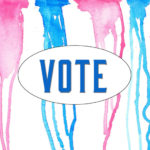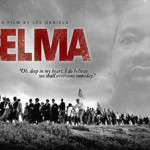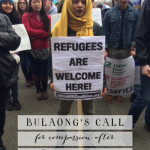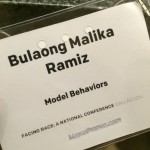With the ongoing Black Lives Matter movement in conjunction with the upcoming presidential election, more and more people seem to be paying attention to what candidates are saying about the issues disproportionality affecting Black communities—police brutality, mass incarceration, unemployment, environmental racism, and more. It should be noted that all issues present in the election are intersecting. They impact the lives of all marginalized peoples.
We’ve seen Black Lives Matter activists across the country challenging politicians, leaders, and presidential candidates on the national stage, urging them to address issues of police brutality and systemic racism. We’ve seen candidates like Bernie Sanders proclaim that Black Lives Matter and other candidates ignore the issue completely, more specifically the GOP in their first debate. Because of the rhetoric espoused by many Republican candidates around reproductive rights, the economy, and war, I’m choosing not to spend this piece talking about them because most of their ideology and ideas would have an adverse effect on my ability to live a full, free, affirming life as a Black working-class woman. For this piece I will focus on the two major topics that I’m personally paying attention to as they pertain to deciding who will get my vote in 2016. Those two subjects are police brutality/policing reform and education/access to higher education.
Police Brutality/Policing Reform
Police brutality has been reintroduced as a social issue, especially as it relates to race, on a national level in a way I haven’t seen since the Rodney King beatings in 1992. Campaign Zero, a collection of comprehensive policy agendas created by community organizers, activists, and citizens seeks to address the national system of policing and provide concrete solutions that can be implemented by the federal and local government. In meetings with Bernie Sanders and Hillary Clinton, organizers discussed the proposals laid out in Campaign Zero and probed these candidates on issues beyond police brutality such as legalization of marijuana, civil asset forfeiture, private prisons, and more. In addition to the physical brutality that we are seeing so much of in the media, the issues are intertwined intricately into systemic oppression, which is often more difficult to see than recorded acts of physical abuse and violence.
While I personally would like to live in a world where the police are not necessary, I know realistically I may not see that in my lifetime. What I’m paying attention to are the conversations around demilitarizing local police, meaning taking military-grade weapons (armor, tanks, etc.) out of the hands of local police. In addition, I’m hoping to see comprehensive policy change in my local city and cities across America on the process of holding police officers accountable in a court of law for crimes against individuals. Lastly, being a culturally competent compassionate individual is such a vital part of coexisting in the world, so I’m looking for federal legislation requiring all police officers to have cultural competency training in order to understand the communities they’re policing, the people who live there, the history of those places, and the history of policing and racist policing as it has existed and still persists in America today. I would like to see more cities adopt the requirement that all police live in the city/district that they work in. What better way to learn, know, and appreciate your community and the people in it than living amongst them?
***Immediately after writing this section this link addressing Hillary Clinton’s latest rally in Atlanta where she threw out Black Lives Matter protestors popped up on my screen. Hillary recently stated that she supports the death penalty, which we know statistically and disproportionally affects Black people, in addition to the racial bias often present in the prosecuting of and convicting of Black people. With that knowledge, the prison industrial complex, school-to-prison pipeline, and the death penalty are all issues addressed in the Black Lives Matter movement.
Education/Access to Higher Education
With President Obama’s recent comments on the over testing of children in school and the immense amount of student loan debt many adults are struggling with (myself included), education reform and college access are hot topics. For those of us in education, we’ve witnessed the transition of teaching critical thinking to teaching to the test. Granted, this phenomenon happens primarily at public schools where educators are required by state law to [over]test students. I myself, a private school attendee, don’t recall ever being taught to the test.
This leads to my next point: Our current education system is not equitable. The children of America are not all leaving elementary school, middle school, even high school equipped with the same knowledge or opportunities to join the work force, go to college, or whatever else students might want to do. In Connecticut, our public school system is funded by property taxes. This means wealthy and predominantly white, suburban areas have very different resources than schools in low-income or high-rent population communities. This is not equitable. This does not provide all our children with the same opportunities and it’s deeply rooted in the history of many of our towns and cities (Google “red lining,” “white flight,” and “de jure segregation” for more information). I’m paying close attention to my local election and the goals and visions of the mayoral candidates, city council candidates, and board of education candidates as well as the response to President Obama’s commentary on prep test and what the next aspiring president hopes to do with that.
As far as student loans go, I’m just praying someone will get rid of them all. I recently tweeted to Donald Trump requesting a small loan of $1,000,000 and have yet to receive a response. But seriously though, the student loan debt is not only affecting people personally but is negatively impacting our economy. I think about all that I could buy and the ways I could contribute to the economy if I did not have thousands of dollars worth of debt. I could be putting money into buying property, clothing, gas, etc. The flow of my money could go so much further if the cost of my education didn’t require me to spend almost half of my bimonthly paycheck on student loan bills alone. When Wall Street gets a break and working students don’t, I take issue with that, and I hope something drastic changes, if not for me, then at least for my little brother and the current/future children of America.
Ultimately, it’s important to identify what issues are most important to you, your life, and your family, but we must not forget that ALL issues are interconnected and while those connections are sometimes difficult to see, they are there.






